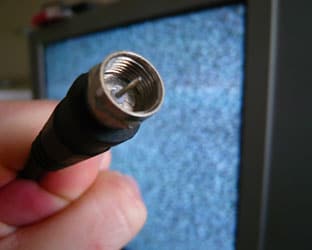When a low power station is upgraded to a Class A station, it gets much more regulatory protection than essentially defenseless low power facilities, but the protection also comes with a price, which is that the Class A must follow most of the rules that pertain to full power stations. 16 Class As with deficient public files are being hit not with the usual $10K fine, but with orders to show cause why they should not be reclassified back to LPTV status. A communications attorney has suggested this approach may signal that the FCC is looking to reclaim television spectrum in advance of the coming incentive auctions.
The FCC fired off letters to the stations in March, and again in August, asking about their “…apparent failure to make the required filing of quarterly FCC Form 398 (Children’s Television Programming Report) for the station.” The FCC also reminded the licensee that the station must be “in compliance with the Commission’s operating rules for full-power television stations,” with the exception with those that are technically or otherwise impossible.
In the notification for W19BR Monckton VT, the FCC wrote, “Among the Part 73 requirements that apply to Class A licensees are the Commission’s main studio requirements; rules governing informational and educational children’s programming and the limits on commercialization during children’s programming; the requirement to identify a children’s programming liaison at the station and to provide information regarding “core” educational and informational programming aired by the station to publishers of television program guides; the public inspection file rule, including preparing and placing in the public inspection file on a quarterly basis an issues/programs list and the station’s quarterly-filed Children’s Television Programming Report; the political programming rules; station identification requirements; and the Emergency Alert System (EAS) rules.”
The notice went to licensees that failed to respond to either of the FCC’s request for information. The licensees are invited to “show cause why its authorization for Class A television station […] should not be modified to specify the station as a low power television station.”
An article on this was published in CommLawCenter, a blog from the law firm of Pillsbury Winthrop Shaw Pittman. In it, Scott R. Flick suggests that the FCC is seeking spectrum rather than cash, and one way to get it is to clear unprotected low power TVs out of the way – an option that is forwarded with it thins the Class A ranks. The stations that failed to follow regulations would constitute “low hanging fruit.”
An LPTV is vastly preferable than a Class A to the FCC at the moment. Flick wrote, “LPTV stations were given no protections under the auction statute, leaving them at risk of being displaced into oblivion, with no right to participate in spectrum auction proceeds and no right to reimbursement for the cost of moving to a new channel during the repacking process (assuming a channel is available).”
Flick concluded, “That the FCC seems to now be moving quickly to cull LPTV stations from the Class A herd just a week after Congress cleared the way for a spectrum auction is likely no coincidence. Instead, these Orders represent the first of many actions the FCC is likely to take to simplify the repacking process while reducing the costs inherent in conducting an auction for vacated broadcast spectrum. For the FCC, LPTV stations and ‘former’ Class A stations are the low-hanging fruit in conducting a successful spectrum auction. The question for other television licensees is how much further up the tree the FCC is going to climb to make more spectrum available for an auction at minimal cost to the government.”
Here is the list of stations hit with notices similar to the one sketched out above:
* WBGR-LP, Bangor/Dedham, Maine licensed to Maine Family Broadcasting, Inc.
* KBBL-CA, Springfield, Missouri, licensed to EBC Harrison, Inc., Debtor-in-Possession
* WFEM-LP, Heiskell, Tennessee, licensed to H. Earl Marlar
* KHCC-LP, Corpus Christie, Texas, licensed to Minerva R. Lopez
* KWDT-LP, Corpus Christi, Texas, licensed to Clark Ortiz
* KQUX-CA, Austin, Texas, licensed to the Louis Martinez Family Group, LLC
* KGLR-LP, Lubbock, Texas, licensed to Lubbock Television Company
* KFLZ-CA, San Antonio, Texas, licensed to B Communications Joint Venture
* KVHM-LP, Victoria, Texas, which was licensed to Humberto Lopez (the FCC noted that Lopez died in May 2011 and addressed the notification to Carlos Lopez, Executor of the Estate of Humberto L. Lopez)
* KINE-LP, Robstown, Texas, which was licensed to Humberto Lopez (see KVHM-LP above)
* KXTM-LP, San Antonio, Texas, which was licensed to Humberto Lopez (see KVHM-LP above)
* W14CK, Newport, Vermont, licensed to SMC Communications, Inc.
* W19BR, Monkton, Vermont, licensed to Convergence Entertainment and Communications, LLC
* WGMU-CA, Burlington, Vermont, licensed to Convergence Entertainment and Communications, LLC
* WBVT-CA, Burlington, Vermont, licensed to Convergence Entertainment and Communications, LLC
* WKAG-CA, Hopkinsville, Kentucky, licensed to Owen Broadcasting, LLC




